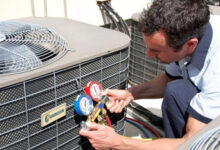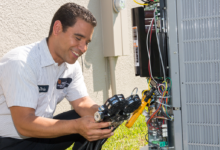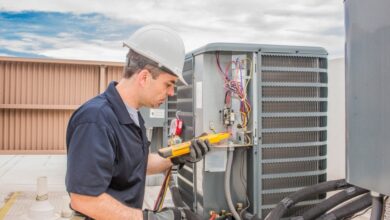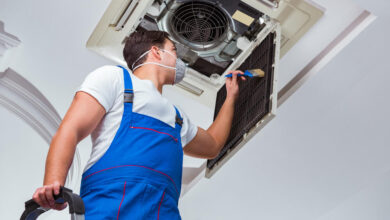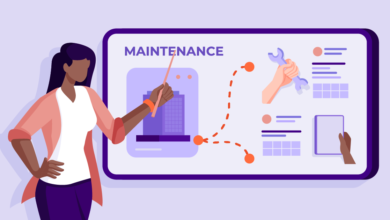Monthly AC Maintenance: A Comprehensive Guide
Sponsored Ads
Introduction
Maintaining your air conditioner (AC) is crucial for ensuring efficient performance, longevity, and reduced energy consumption. Regular monthly maintenance can prevent minor issues from escalating into costly repairs, ensuring a comfortable indoor environment throughout the year. In this comprehensive article, we’ll delve into the benefits, drawbacks, and essential steps involved in monthly AC maintenance, empowering you to keep your AC unit operating at its peak.
Benefits of Monthly AC Maintenance
Lower Energy Consumption
Regular maintenance ensures that your AC unit operates optimally, consuming less energy and reducing utility bills. Clogged filters, dirty coils, and refrigerant leaks can all reduce efficiency and increase energy consumption. With monthly maintenance, these issues can be addressed promptly, keeping your AC running efficiently.
Increased Lifespan
Proper maintenance extends the lifespan of your AC unit by preventing premature wear and tear. By addressing potential issues before they become major problems, you can significantly increase the longevity of your AC and avoid costly replacements.
Improved Indoor Air Quality
Dirty AC filters can trap dust, pollen, and other allergens, which can worsen allergies and respiratory conditions. Monthly maintenance includes cleaning or replacing filters, improving indoor air quality and creating a healthier environment for you and your family.
Enhanced Comfort
A well-maintained AC unit provides consistent and effective cooling, ensuring a comfortable indoor environment even during the hottest months. Regular maintenance prevents the unit from freezing up, blowing hot air, or experiencing other issues that can compromise your comfort.
Drawbacks of Monthly AC Maintenance
Cost
Monthly AC maintenance can add to your monthly expenses, especially if you hire a professional technician. However, the potential savings in energy consumption, reduced repair costs, and extended lifespan typically offset the cost of maintenance.
Time Commitment
Monthly AC maintenance requires some time and effort, especially if you choose to perform it yourself. However, the time spent on maintenance is minimal compared to the potential downtime and discomfort caused by an AC breakdown.
Essential Steps for Monthly AC Maintenance
Check the Air Filter
The air filter is essential for removing dust and debris from the air. Check the filter monthly and replace it if it’s visibly dirty. A clean filter ensures optimal airflow and reduces the strain on the AC unit.
Clean the Condenser Coils
The condenser coils are located outside and help dissipate heat. Clean the coils monthly using a hose or a soft brush to remove dirt and debris that can block airflow and reduce efficiency.
Check the Refrigerant Levels
Refrigerant is the coolant that absorbs heat from the air. Check the refrigerant levels monthly using a refrigerant gauge. Low refrigerant levels can reduce cooling capacity and damage the compressor.
Inspect the Electrical Connections
Loose or damaged electrical connections can cause electrical fires or other safety hazards. Inspect the electrical connections monthly and tighten any loose wires.
Clean the Drain Line
The drain line allows condensation to drain from the AC unit. Clean the drain line monthly to prevent clogs that can cause water damage or mold growth.
Lubricate Moving Parts
Moving parts in the AC unit require lubrication to reduce friction and wear. Lubricate the moving parts monthly to ensure smooth operation and extend their lifespan.
Table: Monthly AC Maintenance Checklist
| Task | Frequency |
|—|—|
| Check air filter | Monthly |
| Clean condenser coils | Monthly |
| Check refrigerant levels | Monthly |
| Inspect electrical connections | Monthly |
| Clean drain line | Monthly |
| Lubricate moving parts | Monthly |
FAQs about Monthly AC Maintenance
Q: How often should I perform monthly AC maintenance?
A: Monthly AC maintenance should be performed every month during the cooling season.
Q: Can I perform monthly AC maintenance myself?
A: Yes, you can perform basic monthly AC maintenance tasks such as checking the filter, cleaning the coils, and inspecting the electrical connections yourself. However, more complex tasks such as checking refrigerant levels should be performed by a qualified technician.
Q: What are the signs of a dirty AC filter?
A: Signs of a dirty AC filter include reduced airflow, higher energy consumption, and an increase in allergens and dust in the air.
Q: How often should I replace the air filter?
A: The frequency of air filter replacement depends on the type of filter and the amount of dust and debris in your environment. Generally, it’s recommended to replace the filter every 1-3 months.
Q: What type of air filter should I use?
A: The type of air filter you use depends on your needs and preferences. Higher-rated filters remove more allergens and dust but may restrict airflow more than lower-rated filters.
Q: How can I keep my AC unit clean during the off-season?
A: To keep your AC unit clean during the off-season, remove the outdoor unit’s cover, clean the condenser coils, and cover the unit with a tarp to protect it from dust and debris.
Q: What are the benefits of professional monthly AC maintenance?
A: Professional monthly AC maintenance provides peace of mind, ensures optimal efficiency, extends the lifespan of your AC unit, and reduces the risk of costly repairs.
Q: What are the consequences of neglecting monthly AC maintenance?
A: Neglecting monthly AC maintenance can lead to reduced efficiency, increased energy consumption, premature wear and tear, and costly repairs or replacements.
Q: How much does professional monthly AC maintenance cost?
A: The cost of professional monthly AC maintenance varies depending on the company you choose and the size of your AC unit. However, it’s typically between $50 and $100 per month.
Q: Can monthly AC maintenance prevent all AC problems?
A: While monthly AC maintenance can significantly reduce the risk of AC problems, it cannot completely prevent all issues. However, it can detect and address potential problems before they escalate into major repairs.
Q: What should I do if my AC unit is not cooling properly?
A: If your AC unit is not cooling properly, check the air filter, clean the condenser coils, and inspect the electrical connections. If the issue persists, call a qualified technician for assistance.
Q: What are some warning signs that my AC unit needs repair?
A: Warning signs that your AC unit needs repair include reduced airflow, unusual noises, increased energy consumption, and water leaks.
Conclusion
Monthly AC maintenance is an essential investment in the longevity, efficiency, and comfort of your AC unit. By performing regular maintenance tasks and scheduling professional inspections, you can prevent minor issues from becoming costly repairs and enjoy consistent and effective cooling for years to come. Remember, a well-maintained AC unit not only provides a comfortable indoor environment but also contributes to energy savings, reduced environmental impact, and peace of mind.
Disclaimer
The information provided in this article is intended for general knowledge and informational purposes only. It is not intended to provide specific advice or recommendations for any specific situation. It is recommended that you consult with a qualified professional for guidance on AC maintenance and repair.



